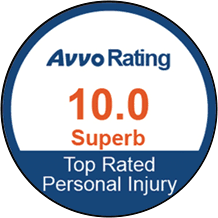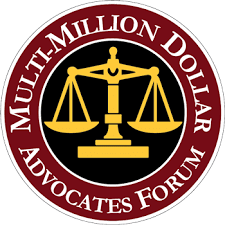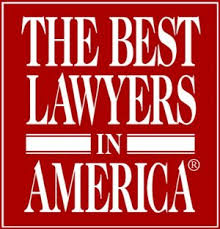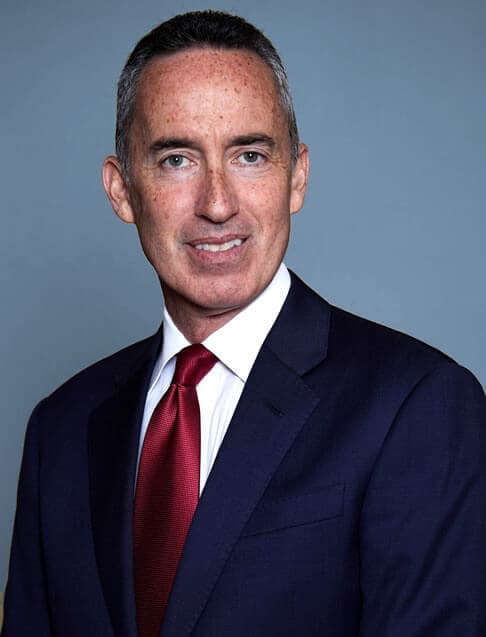When a loved one is placed in a nursing facility, trust is the foundation of that decision. You expect trained professionals to provide comfort, care, and medical attention.
But when that trust is broken, and a nurse's failure causes harm or even death, it's not just medical, it’s deeply personal. A New York nursing negligence attorney can help families hold careless providers accountable and demand the justice they deserve.
If your family member suffered harm because of a nurse’s failure to follow medical protocols, delayed response, medication errors, or neglect in a New York facility, you have legal options.
Schedule a Free Case Evaluation
Table of Contents
- What Is Nursing Negligence?
- Common Signs of Nursing Negligence in New York Facilities
- Facilities Where Nursing Negligence Happens
- Who Can Be Held Responsible?
- Legal Rights and Standards in New York
- Compensation in Nursing Negligence Claims
- What to Do While Healing from Nursing Negligence
- Why Choose Queller Fisher as Your Skilled Advocate in Nursing Negligence Cases?
- How We Approach Nursing Negligence Cases
- Serving Families Throughout New York City and Surrounding Counties
- Frequently Asked Questions About Nursing Negligence in New York
- Get Legal Help from a Trusted New York Nursing Negligence Attorney
What Is Nursing Negligence?
Nursing negligence occurs when a nurse fails to act as a reasonable and competent professional would under similar circumstances, leading to a patient’s injury or worsened condition.
In a legal context, it is a form of medical malpractice. But unlike errors made by physicians or hospitals, nursing negligence often happens in more personal moments, missed calls for help, medication errors, poor hygiene assistance, and more.
Common types of nursing negligence in New York facilities include:

- Administering the wrong medication or dosage
- Failing to report changes in a patient’s condition
- Not following physician instructions
- Delaying or ignoring emergency symptoms
- Poor hygiene care or pressure ulcer prevention
- Mishandling medical equipment
- Improper patient transfers leading to falls
Nurses carry a legal duty of care, whether in a hospital, rehabilitation center, or long-term care facility. When they breach that duty, families deserve real answers.
Common Signs of Nursing Negligence in New York Facilities
Some injuries are obvious, like bruises from a fall. Others are more subtle, hidden under excuses or confusion. Families should watch closely for warning signs, especially when dealing with vulnerable individuals such as seniors or disabled patients who may not fully communicate what happened.
Be alert to:
- Sudden changes in mood, behavior, or alertness
- Pressure sores or ulcers (bedsores)
- Unexplained infections or fevers
- Delays in wound healing
- Repeated falls or injuries
- Dehydration or malnutrition
- Signs of poor hygiene
- Sudden weight loss
- Missed medications or overmedication
It’s natural for facilities to claim “accidents happen,” but consistent signs of neglect or injury could point to a deeper problem, one that a qualified nursing negligence attorney in New York can investigate thoroughly.
Facilities Where Nursing Negligence Happens
Nursing negligence isn’t limited to nursing homes. In New York, these cases often involve:
- Hospitals (including public and private systems)
- Skilled nursing facilities (SNFs)
- Assisted living communities
- Rehabilitation centers
- Home health care services
- Hospice programs
- Memory care or dementia units
These institutions are often under pressure to operate on thin margins. Staff shortages, rushed training, or overworked nurses can lead to corners being cut. The consequences can be life-threatening for those depending on this care.
Who Can Be Held Responsible?
Nurses are rarely the only ones liable. In many nursing negligence cases in New York, multiple parties may be held accountable:

- Individual nurses, for direct actions or failures in care
- Hospitals or care facilities, for poor hiring practices, supervision failures, or inadequate staffing
- Supervising doctors, if they failed to monitor the nurse’s actions or were negligent themselves
- Home health care agencies, for assigning unqualified or overwhelmed staff
- Pharmacists or medication management vendors, if medication was improperly labeled or mixed
Identifying who is legally responsible requires thorough investigation. A strong legal team can uncover whether the negligence was isolated, or part of a pattern of systemic failure.
Legal Rights and Standards in New York
New York law allows victims and their families to pursue compensation for injuries caused by nursing negligence under medical malpractice statutes. A few legal standards apply:
- Standard of care, Nurses must act in a way consistent with professional guidelines and institutional protocols.
- Duty and breach, There must be proof that the nurse owed the patient a duty and breached that duty.
- Causation, The breach must have directly led to the patient’s injury or death.
- Damages, The patient (or surviving family) must have suffered physical, emotional, or financial harm.
New York also enforces a statute of limitations. Most nursing negligence claims must be filed within two years and six months from the date of the incident or discovery of the injury.
However, there are exceptions, especially in wrongful death, minor patients, or cases involving municipal hospitals.
Compensation in Nursing Negligence Claims
Compensation in a nursing negligence case is meant to help the injured person and their family recover as fully as possible from the harm. While no dollar amount can undo what happened, it can:
- Cover medical expenses from additional treatment or surgery
- Pay for therapy, mobility aids, or long-term rehabilitation
- Account for lost income (if applicable)
- Recognize pain, suffering, and loss of quality of life
- Provide for future medical care or in-home assistance
- Offer closure through acknowledgment of wrongdoing
In the most severe cases, including wrongful death, families can pursue compensation for funeral expenses and loss of companionship.
What to Do While Healing from Nursing Negligence
After discovering a case of negligence, it can feel difficult to know what to do next, especially when you're still trying to get answers or help your loved one recover.

Here are some steps that protect both health and legal rights:
- Seek immediate medical evaluation from an independent provider
- Request full medical records, especially nursing notes, medication logs, and incident reports
- Take photos of visible injuries, living conditions, and anything concerning
- Keep a written timeline of what happened, who was present, and what staff told you
- Limit conversations with facility administrators until you’ve spoken with a legal professional
- Avoid signing any releases or waivers, even if framed as routine
Legal cases are strongest when evidence is preserved early. A qualified nursing negligence attorney in New York can begin investigations while you focus on care and recovery.
Why Choose Queller Fisher as Your Skilled Advocate in Nursing Negligence Cases?
Not all law firms are built to take on healthcare institutions.
These are complex cases that demand careful documentation, experienced medical experts, and the skill to stand up to powerful hospital systems or nursing facilities.
A capable New York nursing negligence attorney should offer:
- Deep knowledge of New York’s medical malpractice laws
- Access to medical professionals who can evaluate care standards
- Experience with hospital and facility litigation procedures
- A record of success in holding institutions accountable
- Personal commitment to your family’s long-term well-being
Nursing negligence often involves vulnerable individuals who cannot advocate for themselves. Your attorney must be prepared to do more than file paperwork, they must fight for justice with confidence and compassion.
How We Approach Nursing Negligence Cases
Every case begins with listening. We want to understand what happened, every detail. From there, we work with medical experts, review records, and investigate facility practices.

We’re prepared to file claims, negotiate with insurers, or take the case to trial when necessary.
Our approach includes:
- Thorough case evaluations
- Independent medical reviews
- Aggressive discovery of internal facility practices
- Strategic use of New York’s legal system
- Respectful and responsive communication with families
You won’t be left wondering where your case stands or if anyone is working on it. We treat each claim with urgency, and each client with respect.
Serving Families Throughout New York City and Surrounding Counties
From Brooklyn to Queens, and from Nassau to Westchester, families place their trust in care providers every day. When that trust is broken, we’re ready to help.
We handle cases involving:
- NYC hospitals (including municipal and private systems)
- Skilled nursing facilities across the five boroughs
- Assisted living communities in Westchester, Nassau, and Suffolk
- Memory care units in Queens and the White Plains
If your loved one was injured in a facility that claims to care, let us hold them to that promise.
Frequently Asked Questions About Nursing Negligence in New York
1. Can I file a nursing negligence lawsuit on behalf of my elderly parent?
Yes. If your parent is unable to advocate for themselves due to cognitive decline, physical disability, or medical condition, you can take legal action on their behalf, especially if you are a legal guardian or have power of attorney.
New York law allows immediate family members to protect vulnerable individuals when their rights have been violated.
2. What is the difference between nursing negligence and elder abuse?
Nursing negligence typically refers to mistakes, carelessness, or omissions that result in harm, such as medication errors or missed care routines. Elder abuse involves intentional harm, such as physical abuse, emotional torment, or financial exploitation.
Both can occur in care facilities, and in some cases, they overlap. A nursing negligence attorney can evaluate whether your case involves one or both.
3. How can I report nursing negligence in a New York care facility?
In New York State, you can report suspected negligence or abuse to:
- The New York State Department of Health (for licensed nursing homes or hospitals)
- The New York State Office of the Attorney General’s Medicaid Fraud Control Unit
- Adult Protective Services (APS) if the individual is in immediate danger
However, reporting alone may not stop the harm or lead to compensation. Consulting a nursing negligence attorney can initiate a full investigation and legal claim alongside any state action.
4. Are travel nurses or temporary staff held to the same standards?
Yes. Whether a nurse is a full-time employee, agency staffer, or travel nurse, they are expected to meet the same professional standards. The facility employing or contracting them may also be held liable if their failure contributed to an injury.
Short-term staff are often involved in negligence cases due to understaffing and lack of familiarity with patients.
5. Can nursing negligence occur in private homes through home care?
Absolutely. Home health nurses and aides are legally obligated to follow care plans, administer medications correctly, monitor health, and ensure basic safety.
When they fail in these duties, families may have a claim against both the individual nurse and the home health agency responsible for their assignment and oversight.
6. What happens if the injured person has since passed away?
If the person harmed by nursing negligence has died, their legal claim does not disappear. In New York, the deceased person’s estate, typically through an appointed representative, can file a wrongful death or survival action.
This allows surviving family members to seek compensation for pain and suffering, medical costs, and other related damages.
7. Does it cost anything to hire a New York nursing negligence attorney?
Most personal injury and medical malpractice attorneys, including those handling nursing negligence claims, work on a contingency fee basis.
That means you pay nothing up front. The firm is only paid if they recover compensation for your case. This ensures legal support is accessible to families regardless of income.
Get Legal Help from a Trusted New York Nursing Negligence Attorney

Nursing negligence cases demand more than sympathy, they require legal precision, relentless advocacy, and the ability to take on powerful institutions.
Whether your loved one suffered from ignored medical needs, delayed treatment, or abuse disguised as neglect, legal action may bring both justice and accountability.
At the conclusion of your search, turn to a firm that has stood up for New Yorkers for over 50 years. Queller Fisher brings strength, skill, and commitment to every case we accept.
Call (212) 406-1700 today for a free consultation.
Queller, Fisher, Washor, Fuchs & Kool - New York Office
233 Broadway #1800,
New York, NY 10279
Ph: (212) 406-1700